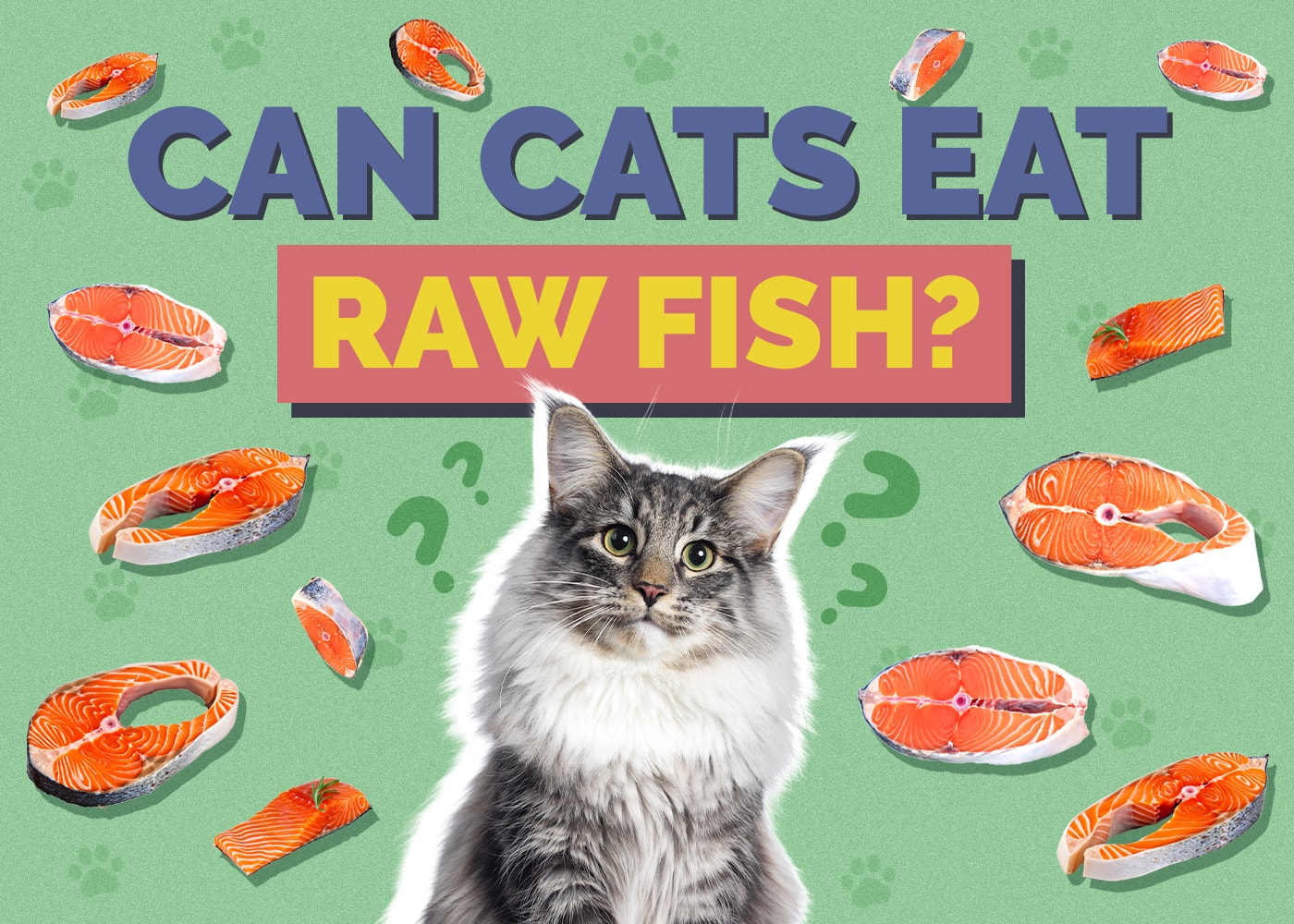How Much Does It Cost to Vaccinate a Cat? 2024 Price Guide
Updated on
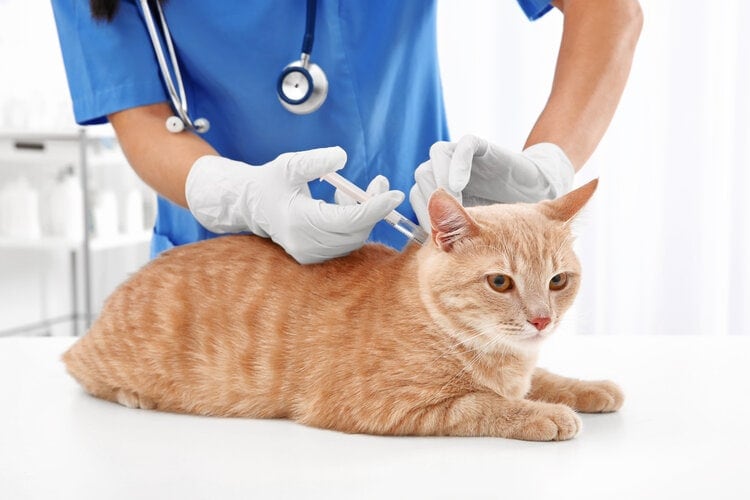
You just adopted a brand-new kitten, or maybe you plan to do so soon. This is a great idea since we know how much joy and unconditional love a pet brings to our hectic lives. But of course, adopting a cat comes with a lot of responsibilities, one of which is vaccination. You will need to budget for these annual costs, as it is important that your kitty’s immunization record is up to date. There are various types of vaccinations that are given at different ages. This guide will give you a good idea of those costs. In general, vaccines for cats will cost you $65 for a cat that stays indoors and $110 for a cat that goes outside.
Read on to find out about other mandatory vaccines, why it’s so important to vaccinate your cat, and a few extras.
Why Do You Need to Vaccinate Your Cat?
Widespread use of vaccination prevents death and disease in millions of animals. Vaccines protect your pet from highly contagious and fatal diseases and improve your pet’s overall quality of life.
Indeed, the vaccine remains, to this day, the safest way to protect your pet from the most widespread diseases. Vaccines contain living or dead microbes either a virus or a bacteria, sometimes just a part or subunit, their genetic information, or even just the toxin they release. Vaccines aim to help in the development of immunity against a pathogen. With a few exceptions, animals that have been vaccinated and completed a schedule are resistant to the disease if exposed to it.
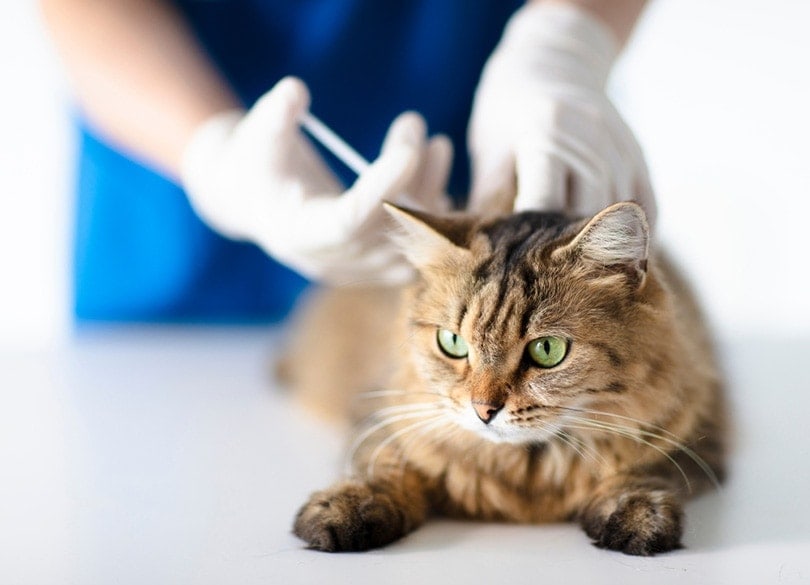
The Top 5 Additional Reasons To Vaccinate Your Cat
- You’ll protect your cat’s life. Some of the viruses are highly transmissible and can infect your cat after making their way to your home transported on your shoes, clothes, or an insect.
- You’ll avoid hefty vet bills. This is because vaccinations are a great way to avoid expensive treatments for serious illnesses.
- You are less likely to get zoonosis. Zoonosis is a disease that is transmitted from animals to humans. Some can be fatal to humans, such as rabies.
- Your cat will be better protected if it goes outside. If a wild animal infected with rabies or other deadly diseases bites it and is not vaccinated, your feline will have little chance of surviving.
- Vaccines are mandatory in most states. You will face possible expensive fines if you do not follow the law and the rules established by each state.
What Are the Basic Vaccines for Cats?
According to the Canadian Veterinary Medical Association and the American Veterinary Medical Association, cats should receive three basic vaccines:
- Feline Panleukopenia: This globally distributed virus can cause profuse and sometimes bloody diarrhea, vomiting, severe dehydration, fever, and sudden death in cats.
- Feline Viral rhinotracheitis (Feline Herpes Virus -1) This common virus infects the airways of cats.
- Feline Calicivirus: These viruses infect the airways of cats.
- Rabies: This deadly and zoonotic virus can cause depression, weakness, paralysis, or the development of aggression in animals.
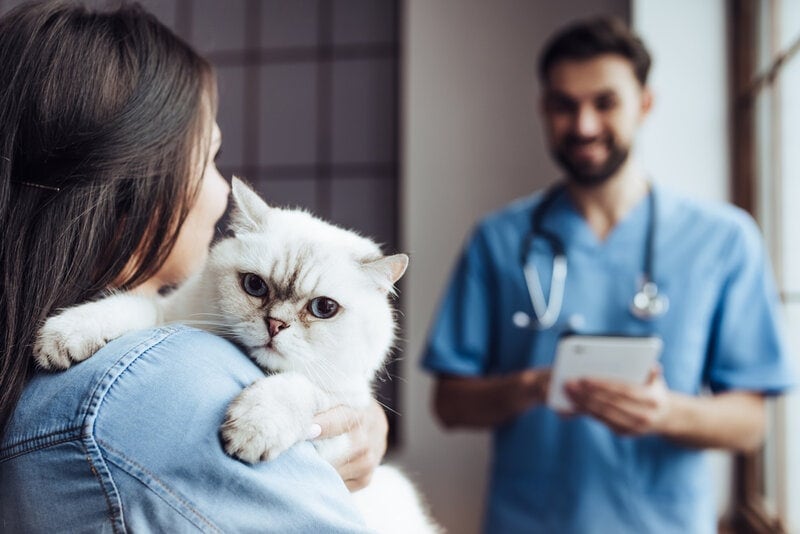
How Much Do the Three Basic Vaccines Cost for Cats?
Prices may vary from one veterinary clinic to another. On average, it will cost you $65 for a cat that stays indoors and $110 for a cat that goes outside.
What Other Vaccines Are Recommended for Cats?
Your vet may also recommend other vaccines for your cat, depending on your area and whether or not your pet goes outdoors:
- Chlamydia. Chlamydia is an infectious disease of cats caused by bacteria from the chlamydiae family and causing eye and respiratory problems. It is a contagious disease that is difficult to treat. Cost: $20
- Feline leukemia (Felv). Feline leukemia is one of the most serious illnesses a cat can get. Besides the virus damage in the body, it causes secondary infections, immunodeficiency, and cancer. Transmission occurs only through direct contact between cats. This infection particularly affects outdoor cats, those who live in a community, and non-castrated males. Cost: $35.
- Feline Immunodeficiency Virus (FIV). The feline immunodeficiency virus (FIV) is the equivalent of HIV in cats. About 1%-5% of cats are infected with it. Once a cat is infected with FIV, it remains so until the end of its life. FIV is spread through fighting and biting and is, therefore, more common in younger, unsterilized cats that go outdoors, especially when marking their territory. Cost: $40.
- Feline infectious peritonitis (FIP). Feline Infectious Peritonitis is an extremely serious disease primarily affecting young cats. Although it is relatively rare (only 1 to 5% of infected animals develop the disease), this pathology is nonetheless the leading cause of death in kittens. Cost: $50.
- Bordetella. This bacteria colonizes the upper respiratory tract of cats and can cause serious respiratory problems. All cats can suffer from bordetella. However, it is much more common in those who cohabit with other domestic felines in overcrowded conditions. Cost: $10.
So, the total cost of the recommended vaccines is around $155, according to veterinary clinics. Your veterinarian will be able to tell you if these vaccines are necessary, depending on the clinical examination he will do and your cat’s lifestyle.
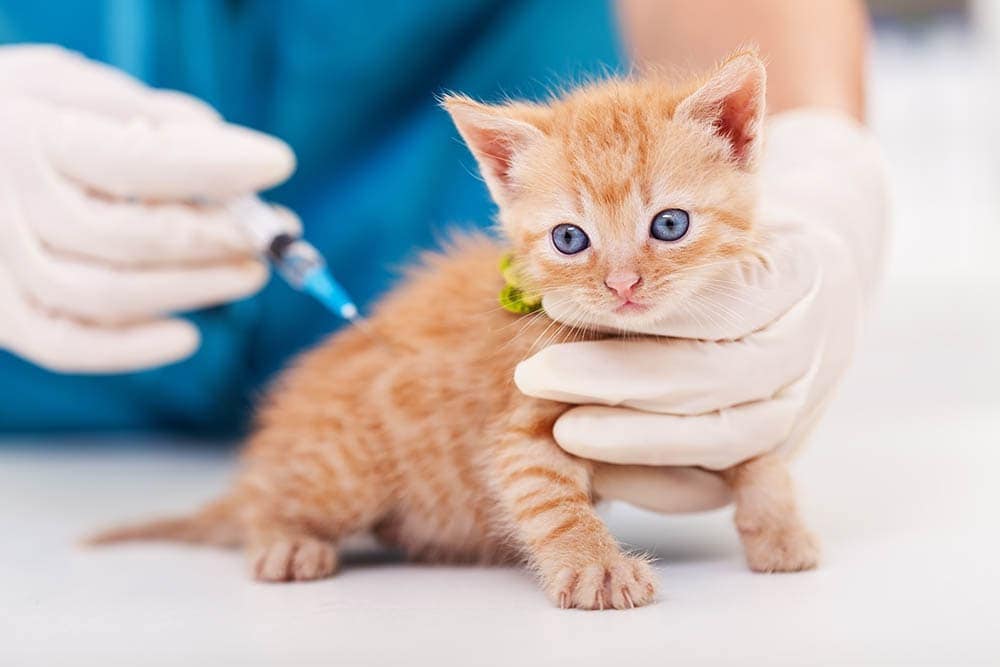
How Much Do Kitten Shots Cost?
Some veterinary clinics offer basic vaccination packages for kittens at least 8 weeks old. You will have to pay around $100 for a package including:
- Physical examination
- FVRCP vaccine (FVRCP stands for Feline Viral Rhinotracheitis, Calicivirus, and Panleukopenia)
- Deworming
- Rabies (only if your kitten is at least 12 weeks old)
- FIV/FELV test
You will also need to come back for the two booster shots, at 12 and 16 weeks of your kitten’s life. You will need to pay approximately $20 for the mandatory booster vaccine for the FVRCP.
Thus, you will have to pay about $120 for the basic package and the booster vaccines that cover the first 4 months of your feline’s life.
Are There Any Risks in Vaccinating Your Cat?
According to the American Veterinary Medical Association (AVMA), any type of medical treatment has associated risks, but the risk must be weighed against the benefits of protecting your pet, family, and community from life-threatening illnesses. The majority of pets respond well to vaccines.
The most common adverse reactions to vaccination are mild and short-term; serious reactions are rare. However, a rare but serious side reaction that can occur in cats is tumor growth called sarcomas, which can develop weeks, months, or even years after vaccination. On the other hand, improvements in vaccines and vaccination techniques have considerably reduced the appearance of sarcomas.
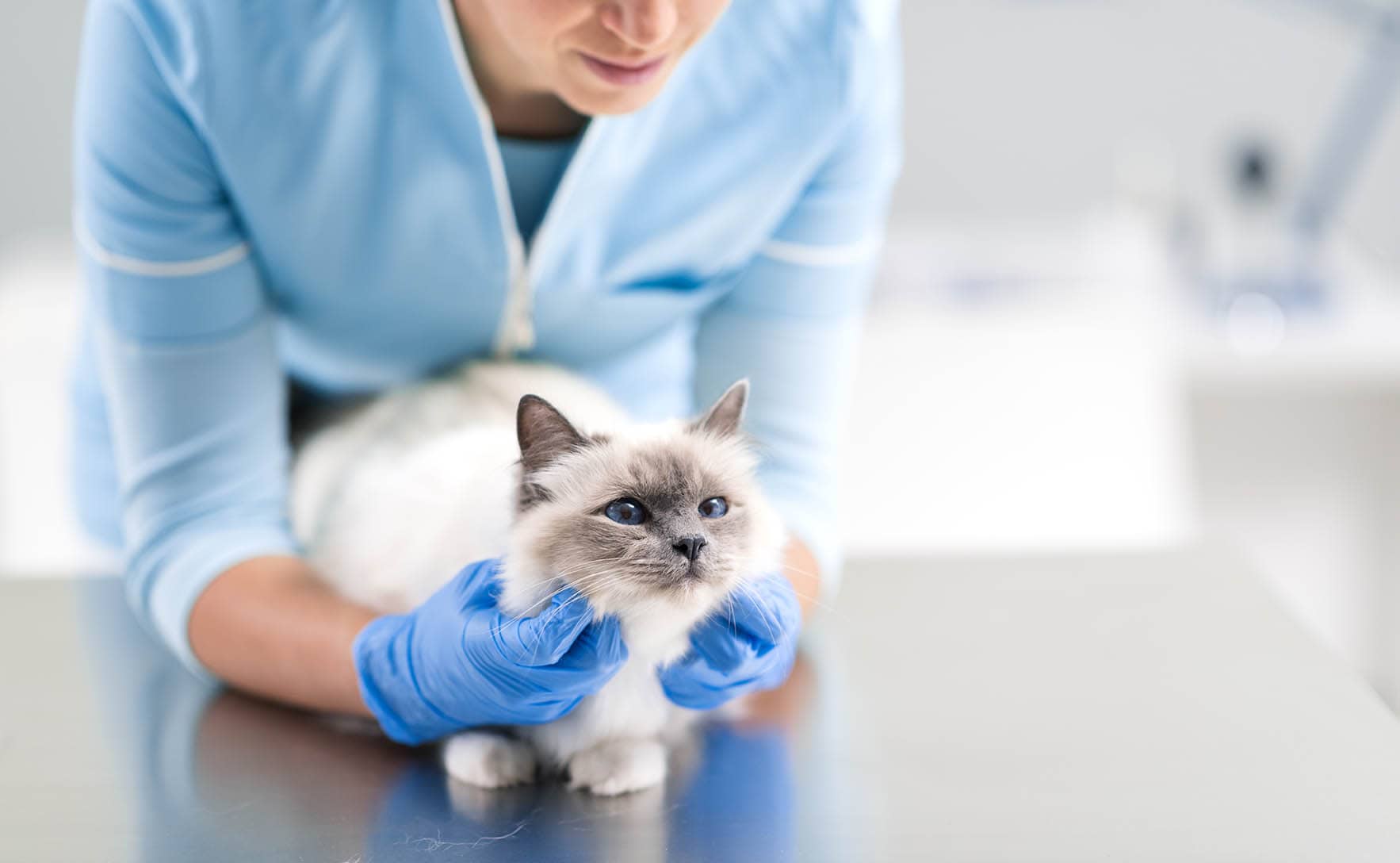
How Often Will You Need to Vaccinate Your Cat?
Annual booster shots are not necessary for all vaccines, but they are needed for rabies. In general, many vaccines provide adequate immunity when given every few years, while others require annual boosters for your cat to maintain a high level of immunity to viral illnesses. Your veterinarian will be able to determine a suitable vaccination schedule for your cat.
Keeping up to date on vaccines is an important part of pet care that can help you avoid costly health problems. Another way to manage pet costs is to invest in a pet insurance plan like the balanced options from Lemonade. These customizable plans can offer coverage for a range of healthcare costs.
Final Thoughts
The veterinary fees indicated are approximate for the year 2022 and may vary according to the professionals, your location, and the multitude of services and treatments offered. It is also important that a bond of trust is established between you and your veterinarian so that together you can determine what is best for your pet within your budget.
Make sure you understand all the care that will be given to your cat and always ask for the most accurate estimate possible to avoid any misunderstanding.
Featured Image Credit: VP Photo Studio, Shutterstock




